The Trans-Pacific Partnership (TPP) is a Corporate Coup in the Making
Trade agreements that emphasize openness should be treated with caution. When the term partnership is used, an even warier eye should be cast at texts, negotiations, and agreements. Where is the pin that underlies the agreement?
On November 13, 2013 WikiLeaks released the draft text of the entire Intellectual Property Rights Chapter of the Trans-Pacific Partnership (TPP). As noted in the preamble, “This chapter published by WikiLeaks is perhaps the most controversial chapter of the TPP due to its wide-ranging effects on medicines, publishers, internet services, civil liberties and biological patents.”
The document’s wording has the recognizable features of the Obama administration’s trade policy, an unsurprising fact given that much of it was authored by United States Trade Representative Michael Froman. It says virtually nothing about the rights of individual citizens, and everything about the rights of states and corporations. An interesting feature of the draft text is the extent to which it discloses various disagreements of the parties.
Tiny and at times plucky New Zealand was none too thrilled by a range of the US positions in the chapter, a position that has gotten sharper as negotiations have gone on. Two-hundred and fifty references involving New Zealand are featured, of which 60 show support for the US position. Peru, Vietnam, Chile, Malaysia, Singapore and Brunei tended to keep company with NZ at many a turn.
The only thing open about US diplomacy on trade is the conscious policy of keeping markets open yet regulated by US rules. Free trade is free, as long as it is mediated by the juridical and legislative guidelines of US law. Good if you can get it, and the imperial sentinels are confident they can force a whole set of enforcement provisions down the willing, and some not so willing throats, of their negotiating partners.
A few highlights from the troubling document
Japan and the US have proposed extending the net of pharmaceutical redress in terms of claims made on patents regarding medicines and drugs. This is tantamount to declaring war on generic drugs: Money first, patient treatment and consumer welfare a distant second. Indeed, drug companies are treated as potential victims, able to seek compensation for delays in the grant or extension of patents. Manufacturers of generic drugs will be in the firing line here, as they will be prevented from using previous data on trials to manufacture cheaper alternatives.
There are also issues about extending the royalty payments 20 years longer than present on all books, movies and videos. There are disagreements about patents on plants and animals. One particular concern is requiring internet service providers (ISP) to become guard dogs for foreign corporations and pursue copyright violations on their behalf.
Both Japan and the US turned up their noses on the issue of “maintain[ing] a balance between the rights of intellectual property holders and the legitimate interests of users and the community.” Legitimacy is in the eye of the beholder, as long as the one beholding has the clout to do so.
The extent of the US aversion to various concerns of smaller negotiating partners was evident to the objectives section of the Chapter, among them being the “transfer and dissemination of technology, to the mutual advantage of producers and users of technological knowledge and in a manner conducive to social and economic welfare, and to a balance of rights and obligations.”
Each party to the agreement would retain a “right to protect public health, including by facilitating timely access to affordable medicines.” Such a social conscience would not wash with Washington’s stance. As intellectual property law expert Matthew Rimmer explains, the draft reflected core trade objectives of Washington and US multinationals “with little focus on the rights and interests of consumers, let alone broader community interests.”
The wind is bound to blow favorably towards Washington from some circles. They will have a compliant Canberra on their side, given the stern eye US officials have regarding Australians’ cavalier disposition to copyright infringement. Former US ambassador to Australia Jeffrey Bleich had been browbeating Canberra over the naughty infractions of Australian citizens on copyrighted content, calling them in April 2013 “some of the worst offenders with among the highest piracy rates… in the world.”
The battle with small New Zealand will continue ahead of the next round of talks. Community, welfare and sharing will come face to face with the corporations, copyrighters and illiberal trade experts.
Editor’s Notes: All photographs from Backbone Campaign.
Related Articles


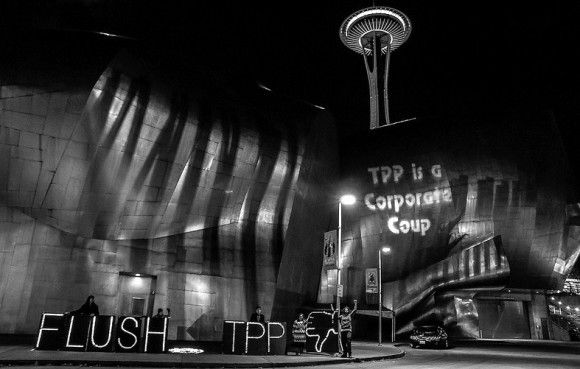
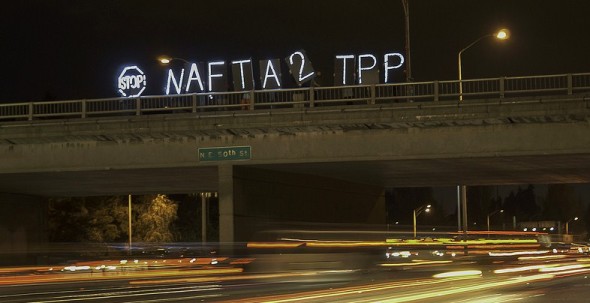

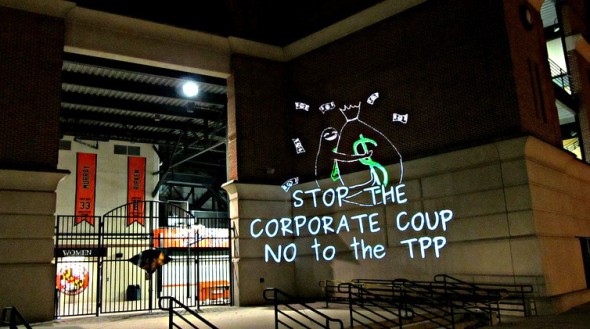

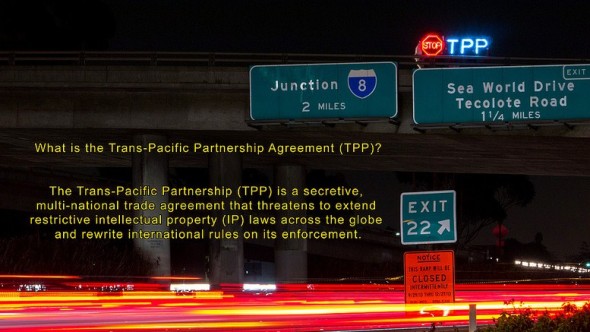
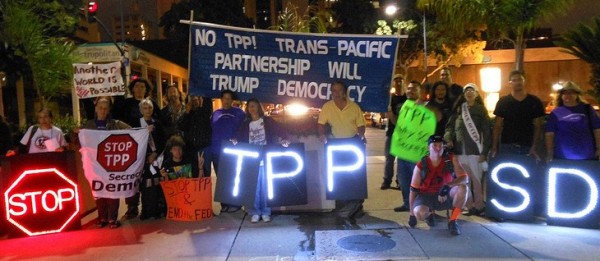
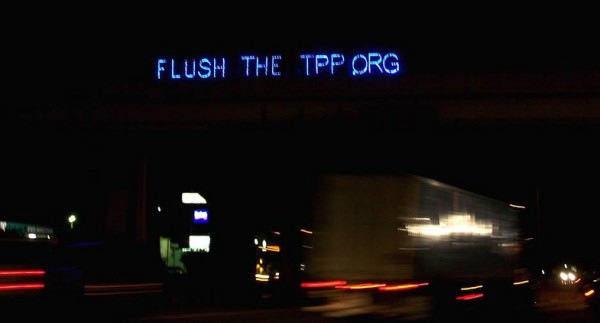











One Response to The Trans-Pacific Partnership (TPP) is a Corporate Coup in the Making
You must be logged in to post a comment Login